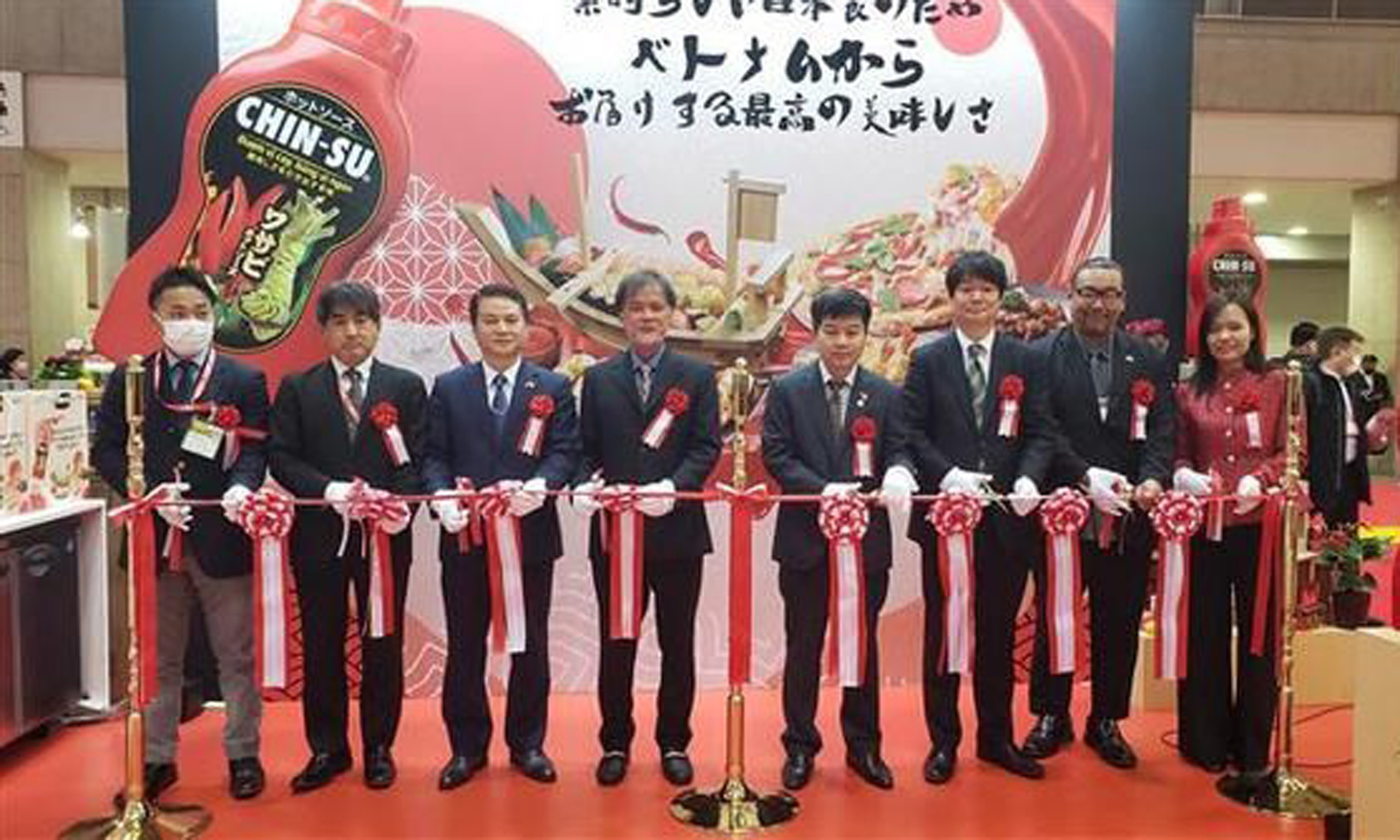Vietnamese firms aim for stronger presence on Japanese market
ABO/NDO- Vietnamese firms are working to bring more products to the Japan to not only increase their presence at the over 125-million-strong market but also use their foothold there as a launch pad to reach other choosy markets in the world.
Masan Consumer, which has successfully sold its Chin-su-branded chili sauce in Japan since August 2018, has introduced a Chin-su seasoning product collection that the firm has developed exclusively for the Japanese market.
As the success in Japan has helped Chin-su chili sauce to enter many other markets such as China, the Republic of Korea, Australia, Europe and northern America, the firm wants to follow the same scenario for its Chin-su seasoning products.
 |
| At the ceremony to intrduce the new Chin-su seasoning product collection in Japan (Photo: VNA). |
Dan Katsuhiko, chief of office for international trade of AEON Group highly valued the quality of Vietnamese products and expressed hope that other products of Vietnam such as vegetable and aquatic products, including those from Masan, will be welcomed by Japanese consumers.
Pan Group, one of the large-scale agricultural and food companies of Vietnam, brought many high added value products to the recent Foodex Japan 2023 such as tra fish, dried fruits, and coffee in the hope of getting attention from Japanese customers.
Nguyen Thi Tra My, Vice Chairwoman and General Director of Pan Group said that Japan is a gateway for Vietnamese products to the world.
Before Masan and Pan Group, in June 2022, Tan Long Group was able to sell Vietnamese ST25 rice with the brand name of A An in Japan after meeting over 600 technical standards set by the country.
Vietnamese Trade Councillor to Japan Ta Duc Minh said that Japanese consumers pay special attention to details like size, colour, packaging and processing methods besides quality and food safety of imported products.
Minh advised Vietnamese exporters to carefully explore the habits and consuming trend of Japanese consumers, while making sure that their products meet the strict requirements of the Japanese market, especially in food safety.
(Source: NDO)
 về đầu trang
về đầu trang







